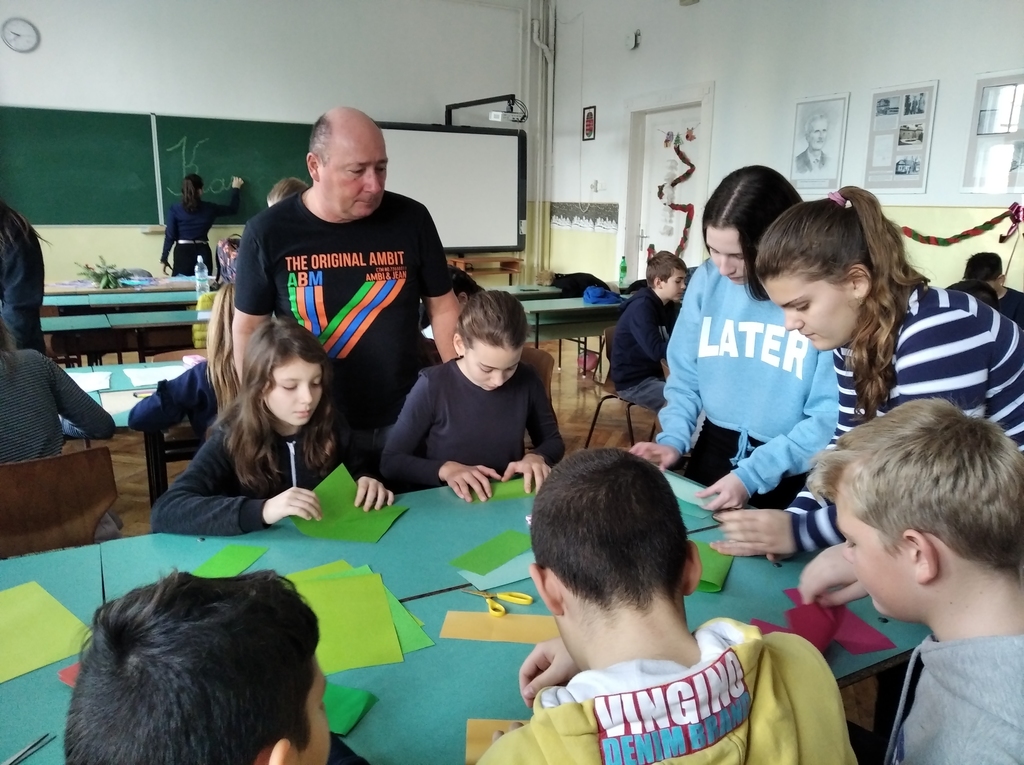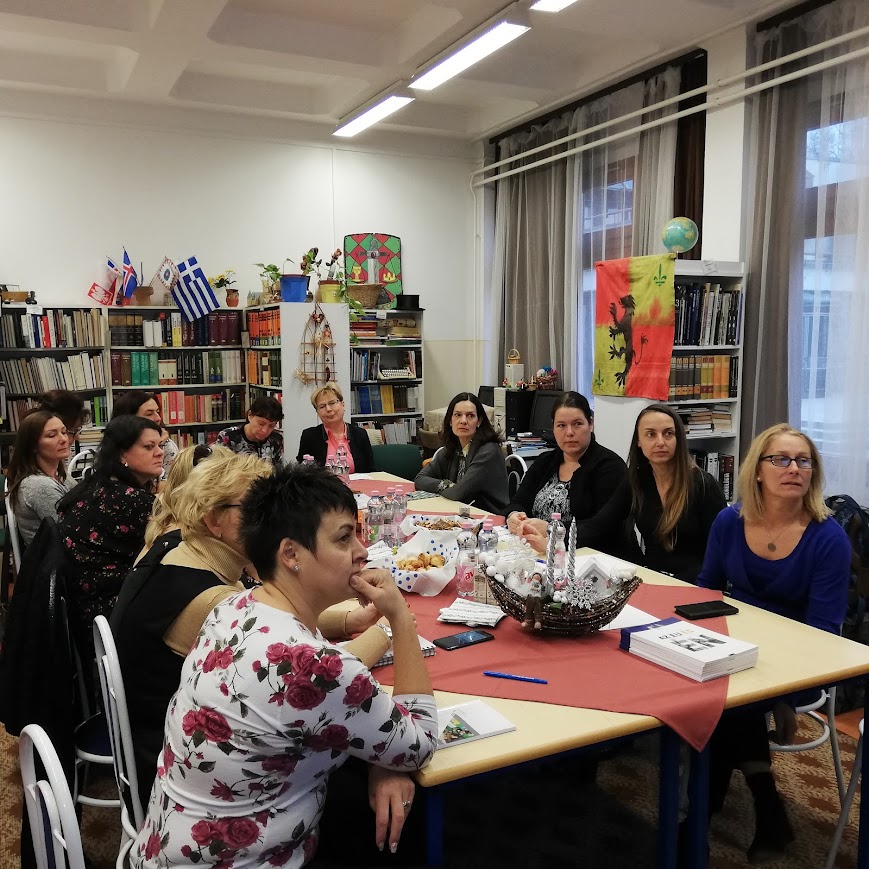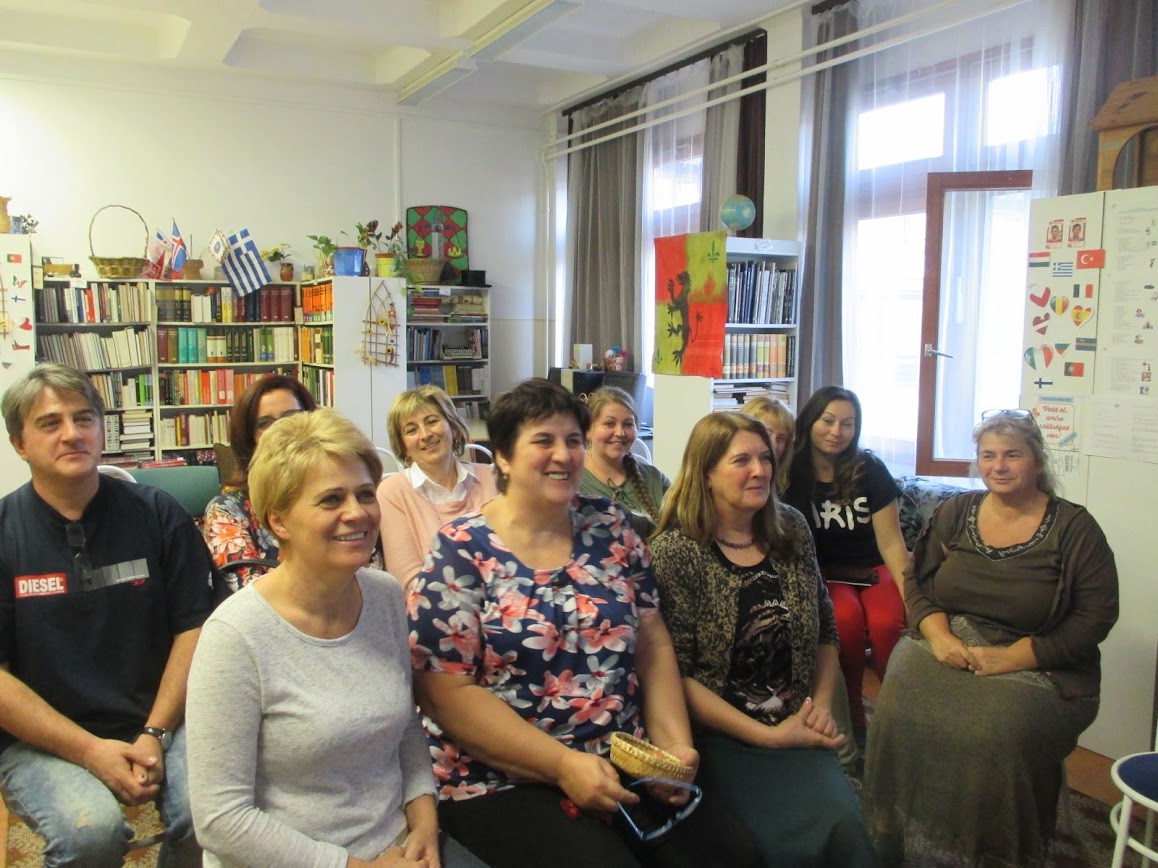
We have had a challenging time: the situation triggered by the Covid-19 virus has affected all areas of our lives. Erasmus+ projects were no exception: outbound trips were cancelled, activities had to be digitised. How could the projects be implemented under such difficult conditions? Coordinators, Agnes Leirerné Katona and Ibolya Seressné Barta tell us how a project can succeed despite the difficulties.
Help is always available
The Csongrádi Batsányi János High School and College School is cool: tutoring to boost young pupils' motivation project examines how to prevent, reduce early school leaving and help students' integration. Project coordinator Ágnes Leirerné Katona tells us about the mentoring programme set up at the school and the adaptation to the virus situation.
At the high-school, twelve mentors were selected from the 7th and 11th grades to support students in fifth and ninth-grade classes arriving at the school. "One part of mentoring was aimed at helping with the curriculum, while the other was aimed at helping with leisure-time activities. It was also an important task to involve the students mentored in school events, as well as jointly work on topics such as conflict management and learning methods." According to Agnes, the great advantage of the programme is giving the children a sense of security. The programme shows them from the perspective of their contemporaries that they always have someone to turn to for support - that they are part of a large community.
Consequently, personal presence in the mentoring program is crucial. Closure and digital education due to the pandemic situation were challenging. "The virus situation has slowed down communication with both partners and students," says Agnes. "The partners had different ways of online education; the epidemiological situation was handled differently. We had to adapt quickly: we were in daily contact with each other via email. Everyone was interested in what was happening in the other country."

In an extraordinary situation, the role of online spaces was appreciated. "We used a Facebook group with mentors and their mentoredfrom the beginning of the project, and the digital education platform became Teams, where we created a channel for project participants as well." There were no designated times for online contact: students continuously could reach each other. "They were able to share the difficulties of online education, helping each other through this period."
Lessons were learned from the challenges. It is not about having as many digital platforms as possible. Instead, build one or two good sites that work well. The partnership found eTwinning useful; initially, it was not part of the project. "The work done on the common interface was transparent and easy to follow. The consultations were also transferred to this interface, so they became simplified as well."
In May, a successful online international meeting took place with the mentors, and they have a plan to travel to Italy in October in such a way that it can be turned into online form if necessary. "I know that the original plans can be implemented, but there is a lot of uncertainty. For example, we do not know whether they will be allowed to travel abroad in the autumn. If we travel, will the families agree to host the students? What do parents think of all this? There are many more questions."
Agnes says that the children have ceased to fear; they want to travel. "I keep my fingers crossed, so we can take them abroad and show them other values. This is a great opportunity, and as a language teacher, I can see its benefits. As long as possible, it has to be done."

The exploitation of the Erasmus experience
The project entitled "Only those know how far we got who saw where we started" (Jókai) was aimed to develop the teachers ofthe Vörösmarty Mihály Elementary School and Primary School of Art in Debrecen by participating in foreign courses and job shadowing. The project coordinator, Ibolya Seressné Barta, tells us how they reacted to the difficulties caused by the virus situation.
"The title of the project is no accident: we are the school of the largest housing estate in the city, we have many disadvantaged, troubled families," says Ibolya. "We feel it is vital to organise programs that help the children and develop the teachers." International projects have been implemented at the Debrecen school for several years, and this type of development became accepted and popular with parents, children and teachers.
In their teacher mobility project, launched in autumn 2019, three areas of development were identified: the development of foreign language competencies, the learning about new tools and methods, including ICT knowledge, and the expansion of the European dimension, which will greatly contribute to the development of the school's international partnerships.
This has been affected by the virus situation. "All our plans have failed. In March, on the way to the airport, colleagues had to turn back; a completely new situation arose, for which we were not prepared initially. The reorganisation was facilitated by the support we received from the National Agency, which showed that there is hope that we can extend the project."
During the first period of online education, all the digital interfaces used by colleagues were collected at the school, and it soon became clear that the chaos was total; there were too many interfaces. A unified system had to be developed, in which Viola and her colleagues were helped by their Erasmus experience. "As a project coordinator, together with many colleagues, I participated in several ICT courses and job shadowing under Erasmus+ and previously Comenius programmes. We first saw Google Classroom in Norway and Iceland; I liked it very much then, but it seemed far away. In an extraordinary situation, in a uniform format, we have created a Google Classroom for each class." Internal training was held on the management of the interface, and some colleagues continue to use it in addition to face-to-face teaching. On the Padlet platform, which is also available for free, separate teaching materials were collected for each subject, and Ibolya also created a digital library for the students. The guides on the use of the different platforms were also published on their website.
"Thanks to Erasmus, we were successful in the Digital Theme Week, which we participated in for the first time. The experience gained on the projects helped a lot in its implementation. The completed material was published in Padlet, and we also won a special prize."
For many years, the School District's schools have been operating the Erasmus Coordinators Club, a knowledge and experience-sharing forum. "We created it at the time of the establishment of the school district, so that colleagues could exchange experiences, share experiences and ideas," says Ibolya. "We have also created a Google Classroom for the club, where we share resources and relevant documents."
International partners were contacted by email. "There was also an unexpected cohesion: we contacted each other and with our current and former partners to inquire about how everyone was going through this period. We were also part of a small initiative: a joint video with a former Turkish coordinator, in which each partner said in their own language, "Together we will succeed". The collaboration was a really positive surprise of the period. "
"Erasmus+ is a huge opportunity for teachers. How would there be a chance for anyone to spend a week in a course in Florence to meet foreign colleagues, learn languages, increase their knowledge? It is a fantastic opportunity professionally, mentally and personally as well. Nowadays, teachers need this even more."
Dorottya Somogyi | Tempus Public Foundation | Communications Directorate
Utolsó módosítás: 2021.12.21.













